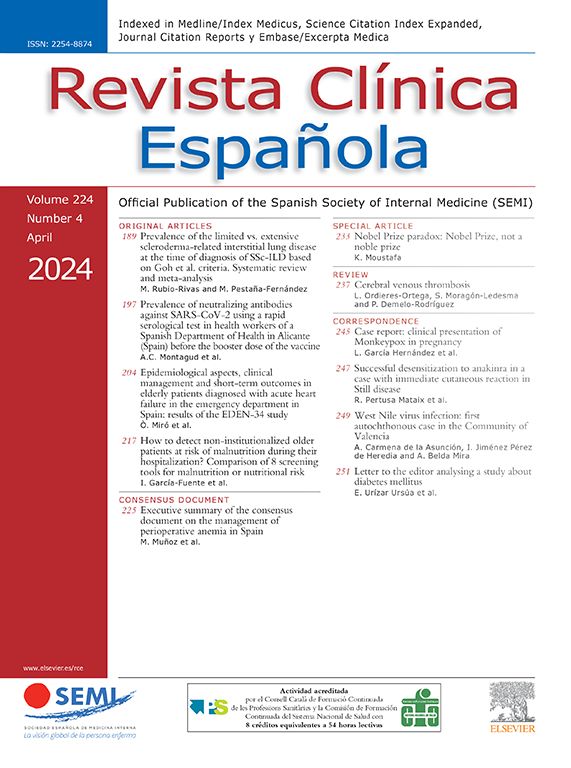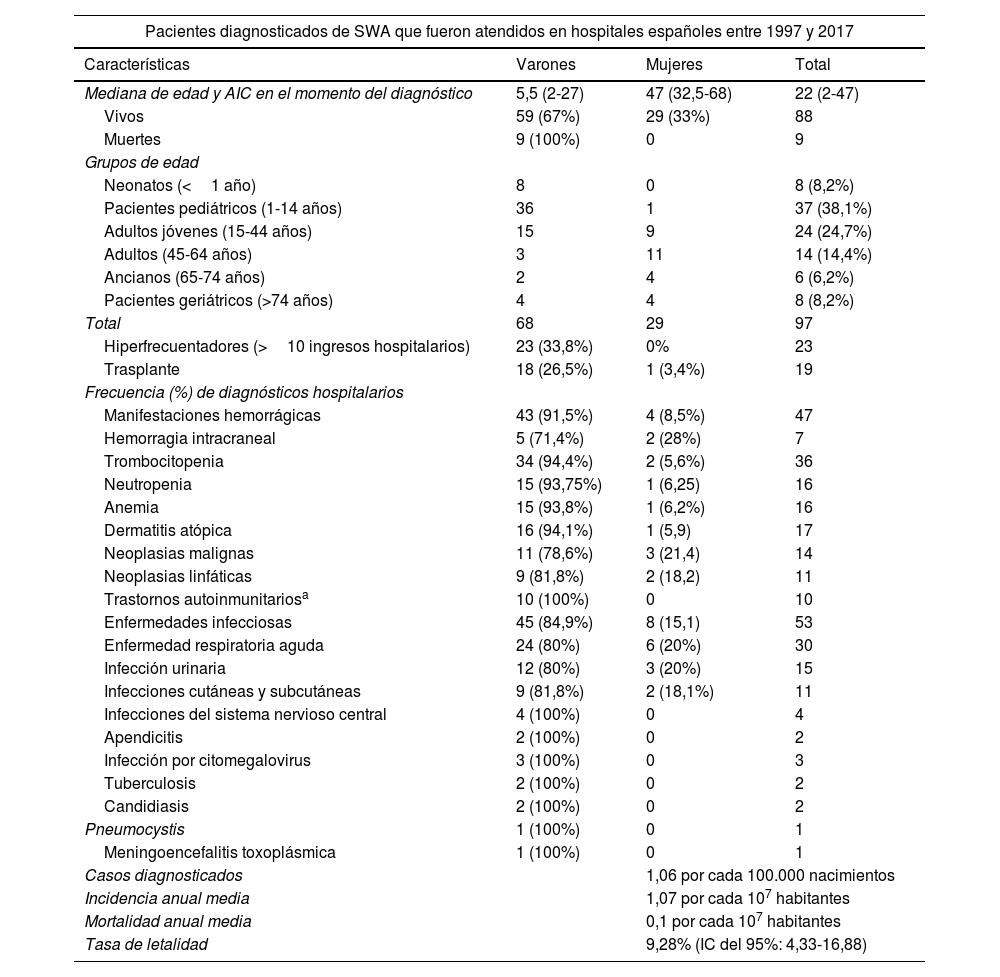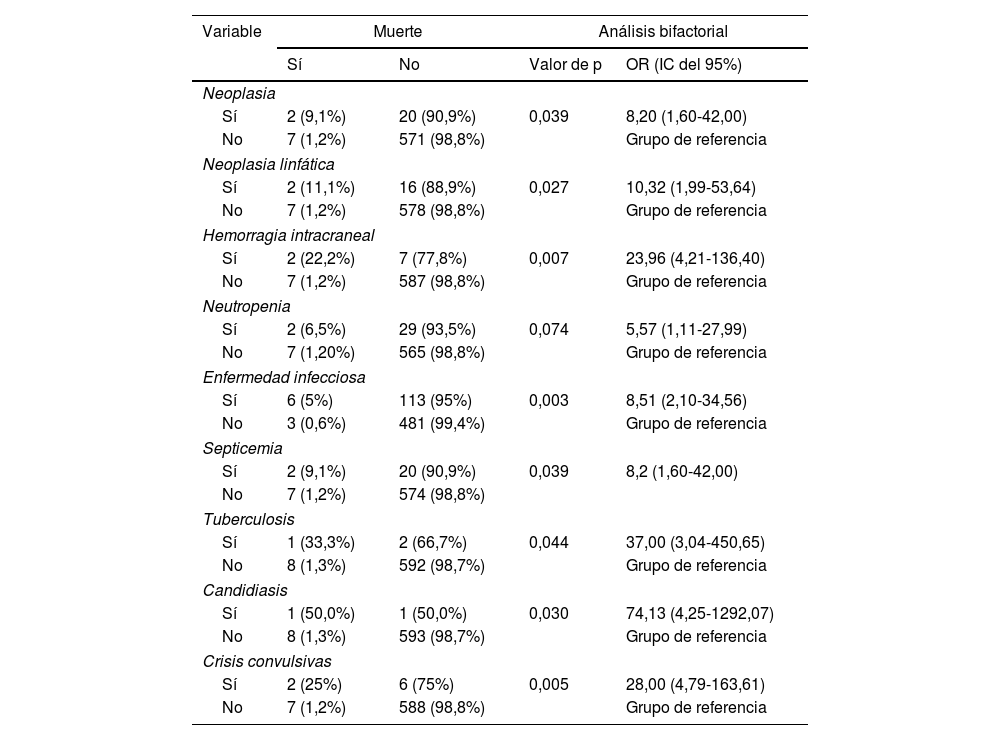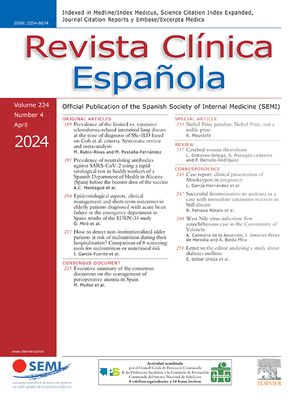El síndrome de Wiskott-Aldrich (SWA) es un trastorno raro ligado al cromosoma X que afecta predominantemente a los hombres.
ObjetivoEste estudio tiene como objetivo investigar la incidencia y muerte intrahospitalaria asociada al SWA en España, así como su sesgo de género.
MétodosSe realizó un estudio epidemiológico retrospectivo de base poblacional de 97 pacientes con SWA diagnosticados en hospitales españoles entre 1997 y 2017, a través del Sistema Nacional del Conjunto Mínimo Básico de Datos al alta hospitalaria.
ResultadosNuestros resultados revelaron que la incidencia media anual de SWA en España fue de 1,1 por 10 000 000 habitantes (IC95% 0,45−2,33). El riesgo relativo fue mayor en hombres que en mujeres (2,42). El diagnóstico de SWA se produce a edades más tardías en las mujeres (mediana de edad de 47 años) en comparación con los hombres (mediana de edad de 5,5 años). Solo hombres ingresaron al hospital al menos en 10 ocasiones diferentes y todas las muertes se detectaron en hombres. La tasa de mortalidad intrahospitalaria fue del 9,28% en WAS, siendo la mayoría de las muertes asociadas a hemorragia cerebral o infección.
ConclusionesEl SWA, una enfermedad rara, se diagnosticó en edades más tardías en mujeres y la mortalidad, mayoritariamente asociada a hemorragia cerebral e infección, afectó a hombres.
Wiskott-Aldrich syndrome (WAS) is a rare X-linked disorder considered to predominantly affect males.
ObjectiveThis study aims to investigate the incidence and intrahospital death associated with WAS in Spain as well as the gender bias.
MethodsA population-based retrospective epidemiological study of 97 WAS patients that were diagnosed in Spanish hospitals between 1997 and 2017 was conducted by using data from the National Surveillance System for Hospital Data.
ResultsOur results revealed that the mean annual incidence of WAS in Spain was 1.1 per 10,000,000 inhabitants (CI95% 0,45-2,33). The relative risk was higher in male than female (2.42). WAS diagnosis occurs at later ages in women (median age of 47 years) compared to men (median age of 5.5 years). Only male were admitted to the hospital at least in 10 different occasions and all deaths were detected in men. The intra-hospital death rate was of 9.28% inWAS, being most of the deaths associated with brain hemorrhage or infection.
ConclusionsWAS, a rare disease, is diagnoses at later ages in women and the mortality wasfound in males mostly associated with brain hemorrhage and infection.
Article
Diríjase desde aquí a la web de la >>>FESEMI<<< e inicie sesión mediante el formulario que se encuentra en la barra superior, pulsando sobre el candado.

Una vez autentificado, en la misma web de FESEMI, en el menú superior, elija la opción deseada.

>>>FESEMI<<<









